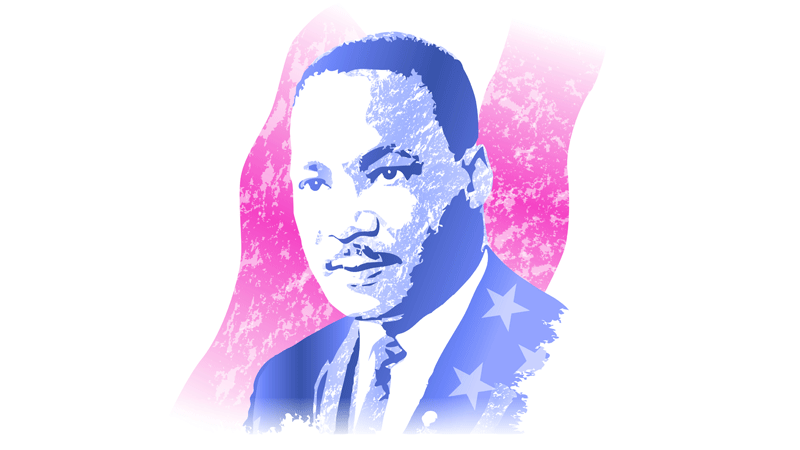Notable moments in the life of Martin Luther King Jr.
Published 9:00 am Wednesday, January 11, 2023
|
Getting your Trinity Audio player ready...
|
Few individuals in American history have made an impact as sizable as Martin Luther King, Jr. King wore many hats throughout his tragically short life, from minister to activist to scholar, leaving behind a legacy that is worthy of celebration.
Though King was assassinated before he even reached his fortieth birthday, his life was filled with many notable events. Many of those events positively affected, and continue to affect, the lives of millions of others.
The Martin Luther King, Jr. Research and Education Institute at Stanford University notes that the following are some of the major events of King’s life.
• January 15, 1929: Now commemorated annually as Martin Luther King, Jr. Day (in 2023, the holiday is observed on Monday, January 16), January 15 marks the day King was born in 1929. King was born in Atlanta, where his father was a pastor at the Ebenezer church.
• September 20, 1944: Despite being only 15 years old, King begins his freshman year at Morehouse College. King was only a high school junior in 1944, but he was admitted to Morehouse, where his father studied for his ministerial degree, after passing the school’s entrance exam.
• August 6, 1946: King’s letter to the editor of The Atlanta Constitution is published. The letter reflects King’s belief that Black Americans are entitled to the same rights and opportunities as White Americans. King’s father later admitted this letter was the first time he and his wife recognized their son’s “developing greatness.”
• February 25, 1948: Following in his father’s footsteps, King is ordained and appointed assistant pastor at Ebenezer Baptist Church in his hometown of Atlanta.
• June 8, 1948: King earns his bachelor of arts degree in sociology from Morehouse College.
• May 6-8, 1951: King graduates from Crozer Theological Seminary in Chester, Pennsylvania. He delivers the valedictory address during the graduation ceremony.
• June 18, 1953: King marries Coretta Scott near the bride’s family home in Marion, Alabama. Coretta Scott King would also become a vocal activist, advocating for peace and gay rights and expressing her opposition to apartheid in the 1980s. She would not remarry after her husband’s assassination.
• June 5, 1955: King earns his doctorate in systematic theology from Boston University.
• December 5, 1955: King becomes president of the Montgomery Improvement Association after the organization is formed at the Holt Street Baptist Church. MIA is formed in response to the arrest of Rosa Parks five days earlier after she refused to vacate her seat for a white passenger.
• January 27, 1956: A threatening phone call late in the evening inspires King to carry on with his activism.
• January 30, 1956: King’s home is bombed while he is elsewhere delivering a speech. His wife and daughter are not injured in the blast.
• January 10-11, 1957: King is named chairman of what becomes the Southern Christian Leadership Conference (SCLC), which was an organization of southern black ministers working together to combat segregation.
• June 23, 1958: King and other leaders meet with U.S. President Dwight D. Eisenhower in Washington, D.C.
• September 17, 1958: Stride Toward Freedom: The Montgomery Story is published. It is King’s first book.
• September 20, 1958: King survives a stabbing during a book signing in Harlem, New York. During a surgery after the stabbing, doctors remove a seven-inch letter opener from King’s chest.
• April 16, 1963: King writes his “Letter from Birmingham Jail” in response to criticisms of the Birmingham Campaign, a collective effort on the part of the SCLC and the Alabama Christian Movement for Human Rights (ACMHR) to combat segregation in the Alabama city. The letter becomes one of King’s most famous writings.
• August 28, 1963: King delivers his “I Have a Dream” speech during the March on Washington for Jobs and Freedom.
• January 3, 1964: King is named “Man of the Year” by Time magazine.
• December 10, 1964: King receives the Nobel Peace Prize in Oslo, Norway.
• March 17-25, 1965: King helps to lead civil rights marchers from Selma to Montgomery.
• June 7, 1966: King and other leaders resume James Meredith’s “March Against Fear” from Memphis to Jackson, Mississippi. Meredith was unable to continue after he was shot and wounded.
• April 3, 1968: King delivers his final speech, “I’ve Been to the Mountaintop,” as he returns to Memphis to lead a peaceful march of striking sanitation workers.
• April 4, 1968: King is shot and killed on the balcony of the Lorraine Motel in Memphis. He is buried in Atlanta five days later.






